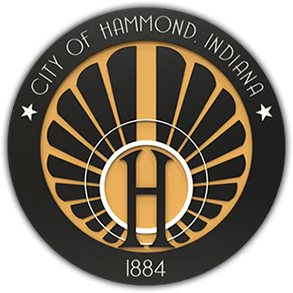July 29, 2014 – Rob Earnshaw
When Johnny Cash sang about the trains that keep a rollin’, he mustn’t have been in Hammond.
If you live in or drive through Hammond, chances are you’ve been stopped at a crossing by a train. And not just a moving train. A stopped train. Just sitting there causing you to be late for work, school, or other appointments.
The good news is the Hammond police feel your pain, as they have issued more than 1,200 citations to a railroad since the start of 2012 for having its trains blocking a crossing.
The bad news is the police say the railroad doesn’t care because “it’s the cost of doing business.”
Indiana state law says a railroad cannot block a crossing with its train for more than 10 minutes (unless it’s for a reason over which the railroad has no control).
So far this year, Hammond police officers have written 427 citations to Norfolk Southern Railroad for doing just that.
The main problem crossings are the ones along the same track that has Norfolk Southern trains running east to west through Grand Avenue, 173rd Street, Parrish Avenue, Arizona Avenue, 169th Street and Kennedy Avenue.
Hammond Police Traffic Cmdr. Lt. Pat Vicari said Norfolk Southern has an intersection with the Indiana Harbor Belt railroad tracks west of Kennedy Avenue and they have to stop at a signal waiting to make a right turn onto the IHB track. The train usually stops just short of Arizona Avenue.
“Right off the top there’s your three intersections – 173rd, Grand and Parrish,” Vicari said. “We know they’re going to be blocked because they’re making that transition from Norfolk Southern to IHB and they go very, very slow. And those trains are always very long.
“It’s almost guaranteed you’re going to get three more citations at Arizona, 169th, and Kennedy…which are all probably within a couple hundred yards of each other. It’s the same train. It’s not uncommon to have five or six crossings blocked by one train.”
Vicari said Norfolk Southern released a protocol in 2004 that states westbound trains will stop short of those crossings from Grand to Kennedy avenues to avoid blocking them.
The document, of which The Times received a copy, also states “it is important to note that when any known delay to a train will exceed 20 minutes, arrangements must be made to cut the grade crossing.”
Vicari said Norfolk hasn’t followed any of that protocol.
“The order says don’t block these crossings and if you’re gonna block them for more than 20 minutes, cut your train,” he said. “Break it up for traffic. We’ve had trains out there for hours blocking things up.”
Vicari said Norfolk Southern is supposed to call them when a train is blocking a crossing but “they never do.”
“It is the cost of doing business to them,” he said. “It is easier and cheaper to just block it and call it a day.”
Norfolk Southern spokesman Dave Pidgeon said the railroad faces challenges in Hammond partly because it’s along the single busiest train corridor in the nation.
“You have more than 100 trains a day moving through that corridor,” Pidgeon said. “And the demand for rail transportation in the United States continues to go up. You see more trains and that puts an enormous challenge on our capacity.”
Pidgeon said track maintenance in the area also has an impact on the railroad keeping its network fluid and it takes seriously its responsibility to each of the communities in which it operates.
“We are in the business of moving trains,” he said. “We obviously want these trains to move. Our customers want them to move. But we have a challenge there from a logistical standpoint to keep those trains moving. We don’t want to occupy crossings any longer than we have to.”
Pidgeon said the nation’s economy depends on the fluidity of the rail network and particularly in the Chicago/Northwest Indiana area.
“We don’t want to slow it down any more than it already is,” he said. “We are constantly looking for solutions.”
